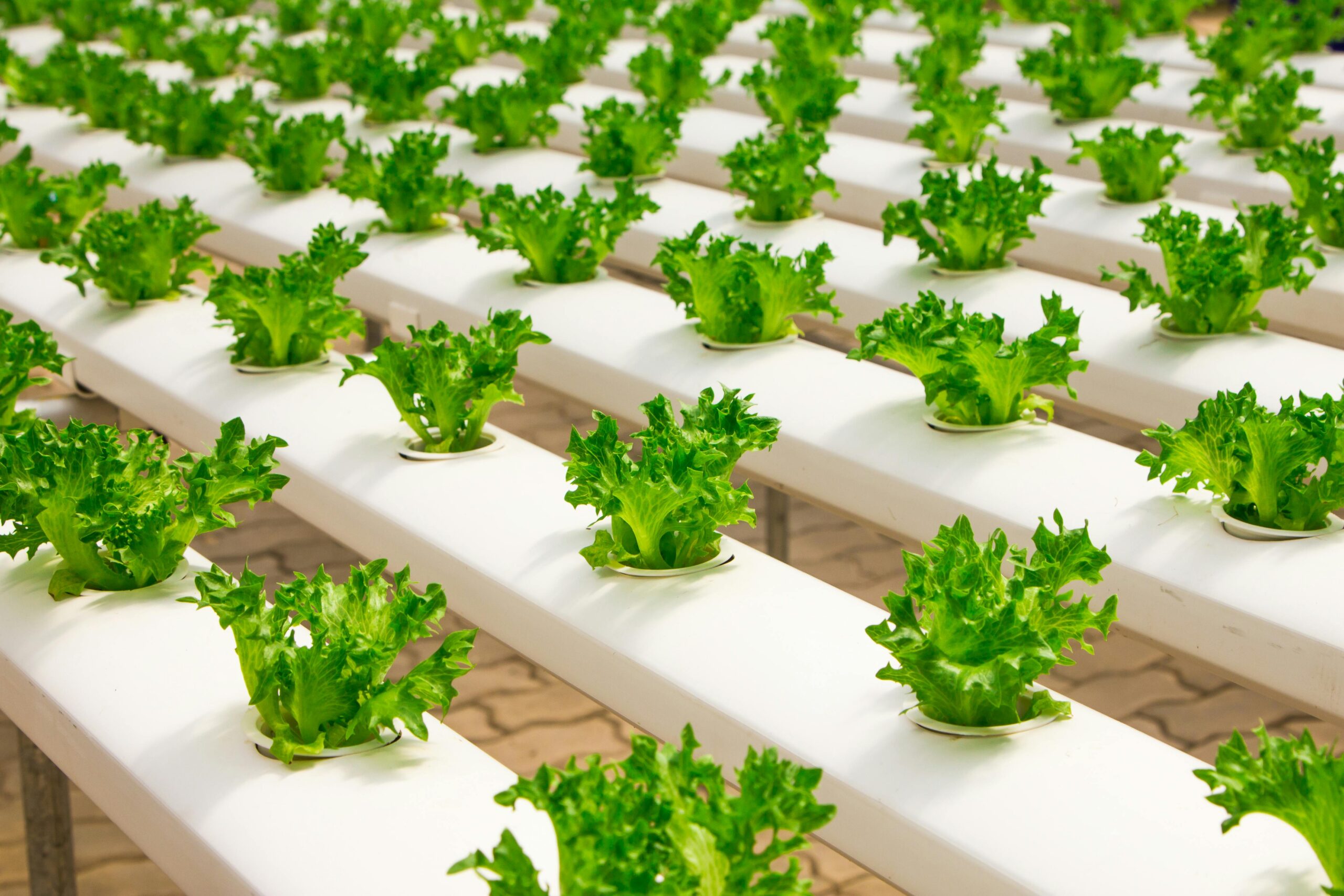Welcome to our blog, where we delve into the fascinating world of organic farming. In this article, we will explore the various benefits and methods of this sustainable approach to food production. Organic farming has gained significant popularity in recent years, as more and more people recognize its positive impact on both human health and the environment. From reducing chemical inputs to promoting biodiversity, organic farming practices offer a range of advantages that we will delve into further. So, let’s dive in and discover the wonders of organic farming together!
The Principles of Organic Farming
Organic farming operates on a set of principles that distinguishes it from conventional farming methods. Understanding these principles is crucial to grasp the essence of organic farming:
1. Soil Health
The foundation of organic farming lies in nurturing and preserving soil health. Organic farmers prioritize the use of natural fertilizers, such as compost and manure, to enrich the soil with essential nutrients. They also employ techniques like crop rotation and cover cropping to maintain soil fertility and structure.
2. Biodiversity
Organic farming aims to create a harmonious ecosystem where diverse plant and animal species thrive. By avoiding synthetic pesticides and promoting natural pest control methods, organic farmers foster a balanced environment that encourages beneficial insects, birds, and other wildlife to flourish.
3. Avoidance of Synthetic Inputs
One of the fundamental principles of organic farming is to minimize the use of synthetic inputs such as chemical pesticides, herbicides, and genetically modified organisms (GMOs). Instead, organic farmers rely on biological pest control, crop rotation, and other sustainable methods to manage pests and diseases.
4. Animal Welfare
Organic farming places great emphasis on the ethical treatment of animals. Livestock raised on organic farms are provided with ample space to roam and graze freely. They are fed organic feed and are not subjected to routine antibiotic or hormone treatments.
5. Environmental Sustainability
By avoiding synthetic chemicals and prioritizing sustainable practices, organic farming has a lower environmental impact compared to conventional agriculture. Organic farms reduce soil erosion, conserve water, and contribute to the preservation of biodiversity, ultimately promoting long-term environmental sustainability.
These principles form the backbone of organic farming, demonstrating its commitment to sustainable agriculture and the production of healthy, environmentally friendly food.
The Benefits of Organic Farming
Organic farming offers a myriad of benefits that go beyond just producing chemical-free food. Let’s explore some of the advantages associated with this eco-friendly farming approach:
1. Nutritional Value
Organic crops are known to have higher nutritional value compared to conventionally grown crops. Studies have shown that organic fruits and vegetables tend to contain more beneficial antioxidants, vitamins, and minerals, which can contribute to improved overall health.
2. Reduced Chemical Exposure
One of the primary reasons people opt for organic food is to reduce exposure to synthetic chemicals. Organic farming strictly prohibits the use of synthetic pesticides and herbicides, minimizing the risk of chemical residues on produce and potential adverse health effects.
3. Soil Conservation
Organic farming practices prioritize soil conservation and long-term soil health. By avoiding the use of synthetic fertilizers and relying on natural soil amendments, organic farmers enhance soil structure, water retention, and microbial activity. This leads to improved soil fertility and reduced erosion.
4. Water Quality
Organic farming plays a crucial role in safeguarding water quality. By avoiding the use of chemical fertilizers and pesticides, organic farmers prevent water contamination, protecting nearby water sources from harmful runoff and preserving aquatic ecosystems.
5. Support for Biodiversity
Organic farms serve as havens for biodiversity. By promoting natural pest control and avoiding the use of GMOs, organic farming allows for the coexistence of various plant and animal species. This helps maintain ecological balance and contributes to the preservation of endangered species.
6. Climate Change Mitigation
Organic farming practices contribute to climate change mitigation by reducing greenhouse gas emissions. Organic farms tend to have lower energy requirements, thanks to the absence of synthetic inputs. Additionally, organic soil management techniques, such as cover cropping and composting, can sequester carbon dioxide from the atmosphere.
These are just a few of the many benefits associated with organic farming. By supporting organic agriculture, we can embrace a sustainable, healthier, and more environmentally conscious approach to food production.
Challenges and Future of Organic Farming
While organic farming offers numerous benefits, it also faces certain challenges. Understanding these challenges is crucial for the future growth and development of organic agriculture:
1. Limited Yields
Organic farming often faces challenges in achieving the same high yields as conventional farming methods. This can be attributed to the reliance on natural inputs and the need for crop rotation, which may result in lower production quantities. However, ongoing research and advancements in organic farming techniques aim to address this issue and improve yields.
2. Higher Costs
Organic farming can be more expensive compared to conventional farming due to the higher costs associated with organic certification, organic inputs, and labor-intensive practices. As organic farming becomes more widespread and economies of scale are realized, it is expected that these costs will decrease, making organic produce more accessible to a wider consumer base.
3. Market Demand and Distribution
While the demand for organic products continues to grow, there can be challenges in meeting this demand and ensuring efficient distribution. Organic farmers often face hurdles in accessing markets, especially in regions with limited organic infrastructure. Collaborative efforts between farmers, retailers, and consumers are essential to strengthen the organic market and enhance accessibility.
4. Education and Awareness
Education and awareness about organic farming practices are pivotal for its long-term success. Many consumers are still unfamiliar with the benefits and principles of organic farming. Providing information and promoting awareness about organic agriculture can help consumers make informed choices and support the growth of the organic industry.
5. Government Support
Government support plays a crucial role in the development of organic farming. Policies that encourage organic practices, provide financial incentives, and support research and development can greatly contribute to the expansion of organic agriculture. Continued collaboration between governments, farmers, and stakeholders is necessary to create a conducive environment for organic farming to thrive.
Despite these challenges, the future of organic farming appears promising. With ongoing research, technological advancements, and increasing consumer demand, organic farming is poised to continue its growth as a sustainable and responsible approach to food production.
Getting Started with Organic Farming
If you are inspired by the principles and benefits of organic farming and wish to embark on your own organic farming journey, here are some essential steps to get you started:
1. Research and Planning
Start by conducting thorough research on organic farming practices, local regulations, and market demand. Determine the specific crops or livestock you want to focus on and create a detailed business plan outlining your goals, resources, and strategies.
2. Soil Testing and Preparation
Before starting your organic farm, it is crucial to test your soil for nutrient levels and pH. This will help you understand the specific soil amendments and organic fertilizers needed to optimize soil health. Implement soil preparation techniques such as composting, cover cropping, and organic matter incorporation.
3. Organic Certification
Consider obtaining organic certification for your farm. While it is not mandatory, certification adds credibility to your organic products and opens up more market opportunities. Familiarize yourself with the organic certification process and requirements specific to your region.
4. Sustainable Pest and Disease Management
Learn and implement natural pest and disease management strategies. This includes crop rotation, encouraging beneficial insects and birds, using biological controls, and practicing good sanitation to prevent pest and disease outbreaks. Regular monitoring and proper identification are essential for effective management.
5. Crop Rotation and Diversification
Implement a crop rotation plan to prevent soil nutrient depletion and minimize pest and disease pressure. Rotate crops with different nutrient requirements and growth habits. Additionally, consider diversifying your farm by incorporating intercropping or agroforestry systems to enhance biodiversity.
6. Networking and Learning
Connect with other organic farmers, attend workshops, and join farming associations or organic farming networks. Learning from experienced farmers and sharing knowledge and experiences can help you navigate challenges and stay updated with the latest organic farming practices.
Embarking on the journey of organic farming requires dedication, patience, and continuous learning. With a passion for sustainable agriculture and a commitment to organic principles, you can create a successful organic farm that contributes to a healthier planet and a more sustainable food system.
The Impact of Organic Farming on the Environment
Organic farming has a significant positive impact on the environment. Let’s explore some of the ways organic farming contributes to environmental preservation:
1. Soil Conservation
Organic farming practices prioritize soil conservation and health. By avoiding synthetic fertilizers and pesticides, organic farmers help preserve soil structure, reduce erosion, and improve water retention. This not only benefits the farm but also prevents soil degradation and protects nearby water sources from pollution.
2. Reduced Chemical Runoff
Unlike conventional farming, organic farming avoids the use of synthetic pesticides and herbicides. This significantly reduces the risk of chemical runoff into rivers, lakes, and groundwater. By minimizing chemical contamination, organic farming helps maintain water quality and protect aquatic ecosystems.
3. Biodiversity Preservation
Organic farms support biodiversity by creating habitats for a variety of plant and animal species. By avoiding harmful chemicals, organic farmers provide a safe environment for beneficial insects, birds, and other wildlife to thrive. This contributes to the preservation of biodiversity and the protection of endangered species.
4. Reduced Greenhouse Gas Emissions
Organic farming practices help mitigate climate change by reducing greenhouse gas emissions. Organic farms rely on natural fertilizers and biological pest control methods, resulting in lower energy consumption and carbon emissions compared to conventional agriculture. Additionally, organic soil management techniques, such as composting, sequester carbon dioxide from the atmosphere.
5. Conservation of Water Resources
Organic farming promotes water conservation by improving soil structure and water retention. Healthy organic soils have a higher capacity to hold water, reducing the need for irrigation. This reduces pressure on water resources and contributes to more sustainable water management practices.
6. Protection of Pollinators
Organic farms play a crucial role in protecting pollinators, such as bees and butterflies. By avoiding the use of neonicotinoid pesticides, which have been linked to bee declines, organic farming provides a safe haven for pollinators. This is essential for the pollination of crops and the overall health of ecosystems.
Organic farming’s commitment to environmentally friendly practices makes it a powerful tool for preserving natural resources, protecting biodiversity, and mitigating climate change. By supporting organic agriculture, we can contribute to a healthier planet for future generations.
In conclusion, organic farming offers a sustainable and responsible approach to food production that benefits both human health and the environment. By prioritizing soil health, biodiversity preservation, and the avoidance of synthetic inputs, organic farmers create a harmonious ecosystem that promotes nutrient-rich crops, reduces chemical exposure, and supports the well-being of animals. The numerous benefits of organic farming include higher nutritional value in organic produce, reduced chemical runoff, soil conservation, water quality preservation, support for biodiversity, and climate change mitigation.
While organic farming faces challenges such as limited yields, higher costs, and market demand, the future of organic agriculture looks promising. Continued research, education, and government support are key to overcoming these challenges and ensuring the growth and accessibility of organic farming. Whether you are a farmer looking to transition to organic practices or a consumer seeking healthier and more sustainable food options, embracing organic farming is a step towards a greener and more sustainable future.
So, let us embrace the principles of organic farming, support organic farmers, and make conscious choices that promote a healthier planet and a sustainable food system for generations to come.

